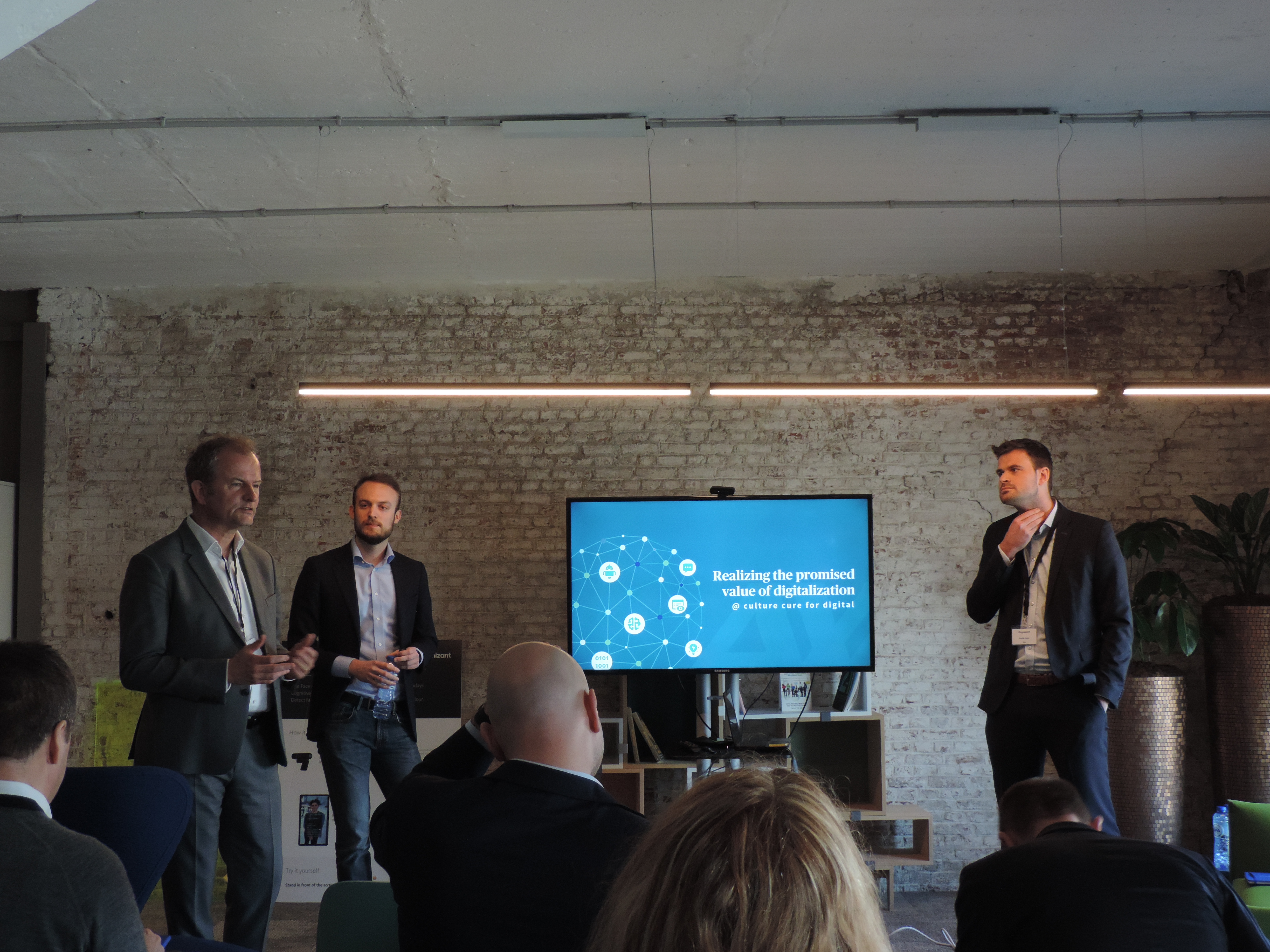
On March 21st 2019, Cognizant hosted a breakfast session for Digital Leaders to walk them through the blueprint for modern organisations that want to be successful in an era where more and more companies are competing on code and data. Cognizant identified one key success factor: Culture. Companies that have the most brilliant digital strategy, but who don't manage to keep their people on board, have wasted their investment. The pressure on your people continues to grow as change is now measured in weeks, not months. Human-to-Machine workflows and algorithms are telling people what they should do and monitor their performance constantly. Businesses have an insatiable demand for creativity by their people. Culture matters, and the most effective business leaders know when it’s right.
During this highly interactive breakfast session, the following four people animated the debate on this topic:
Euan Davis, VP Center for the Future of Work EMEA Cognizant, outlined how leaders need to intentionally reshape the organizational culture to energize people for work in the digital age. He also spoke about the main common denominators of organisations that thrive in this period, where we only start to define business models that monitise data:
Emile Fyon, Head of Digitalisation at AXA, and Christophe Castan, Head of Artificial Intelligence at AXA, talked about their experience in creating a culture fit for digital innovation within their organization. They shared the AXA recipe for success throughout the lifecylce:
At Axa, they're no longer talking about a 'minimal viable product'. They now strive to at least deliver a 'minimal lovable product'. The key difference is the fact that the solution should not only work and be usable, but that user friendliness is a key part of the solution.
Wim van Hennekeler, Head of Cognizant Consulting Benelux, highlighted the prerequisites for successful digital transformation in the areas of leadership, workspace, power, reskilling, EX (employee experience) as well as the future of work.
Cognizant analysed the major macroeconomic, political, demographic, societal, cultural, business and technology trends observable today. Based on this research, they identified the 21 new jobs that will emerge over the next 10 years and will become cornerstones of the future of work.
These Stories on CIONET Belgium
No Comments Yet
Let us know what you think